Ruuvi has had the honour to help one of the biggest universities in Finland to maintain proper conditions in its storage units. According to Finnish law, dedicated libraries must preserve at least one copy of printed papers and books in their collection for at least 300 years, if the paper or book has been printed over 50 times. Therefore, a proper environmental monitoring system is required.
Also, in universities, science is being studied, and important research is being done. Hence, there are multiple expensive systems that are used to measure even the tiniest differences in physical matter. In their location, ambient conditions must be kept constant and at the correct levels at all times. Environmental monitoring is a must for institutions such as universities.
An IT specialist at the university of Turku, Pekka Korte, introduced me to their libraries and told me about their ambient monitoring needs. He also explained and demonstrated how the Ruuvi monitoring system has helped them in this respect.
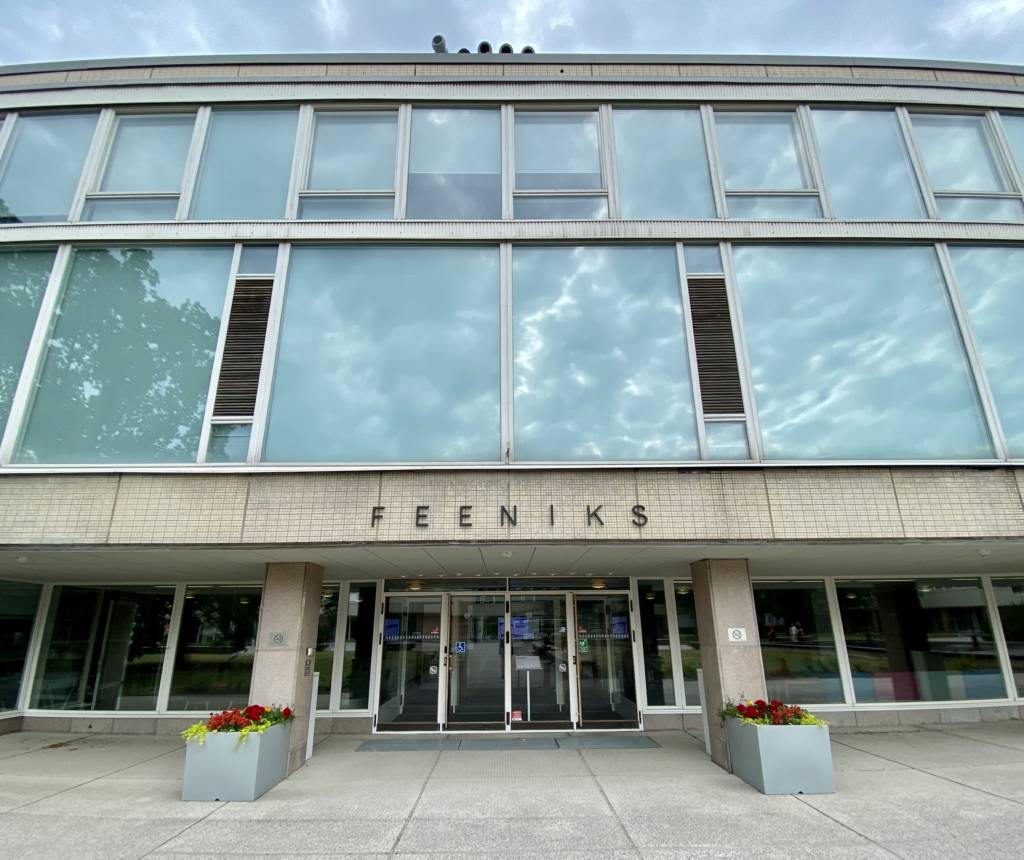
University of Turku is one of Finland’s biggest universities
University of Turku is an academic society consisting of 25 000 students and employees. The university is leading research in many fields of science, most notably in biodiversity and research of the future.
As with most universities, University of Turku has a massive library, and theirs is filled with books from the 15th century up to the current date. Books are one of the most important sources of evidence of our past. Therefore they must be kept in proper environmental conditions, if they are to be preserved for future generations.
The study of chemistry, physics and biology requires extremely sensitive sensors to measure even the slightest differences in our world. Devices such as mass spectrometers require the same ambient temperature in order for their measurements to be considered reliable.
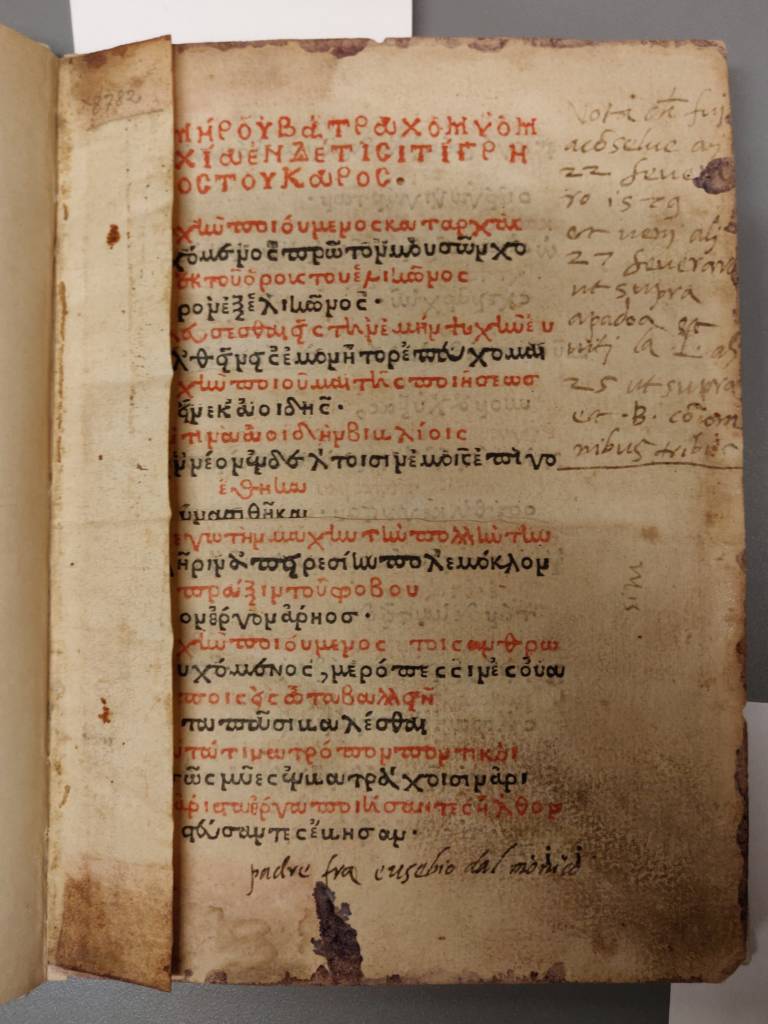
Sensitive spaces require reliable monitoring
The University of Turku has outsourced the handling and maintenance of their ambient conditions. Since the University itself has the duty to preserve books and other materials, the fact that a third party is responsible for damages caused by improper handling and monitoring, can be problematic.
The employees of the University do not feel assured that proper conditions are met at all times. They wanted to create a system that monitors temperature and humidity in the book storage round the clock. Also, creating and receiving alarms by email directed to the person in charge if and when the conditions are not optimal, was a major criterion for the monitoring system.
The library’s power outlets are turned off during the night and the space is divided into three levels with a thick floor in between each level.
The requirements for monitoring the environmental conditions of the book storage spaces were not straightforward, to say the least.
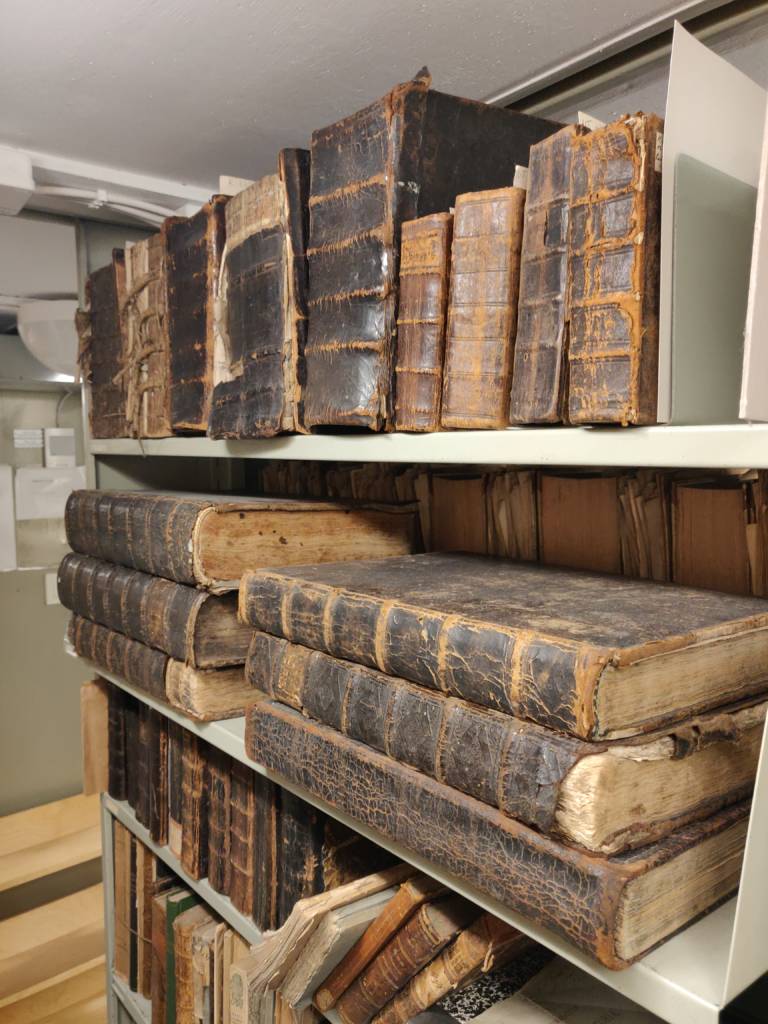
A draft in the IT area
Many universities have been built during eras in which the construction knowledge was not as sophisticated as it is nowadays. In one of the IT spaces in the University of Turku, heating is placed on one side of a big room and cooling is placed on the opposite wall. This placement of temperature elements creates an unallowable difference in temperature between both sides of the room.
The company that is hired to control the air conditioning in the room does not recognise this difference with their monitoring system. But, we already know that with a more accurate monitoring system, the employees of the University of Turku can demonstrate to them that the temperature of the space is not being controlled adequately.
Employees responsible for book storage and IT areas wanted to have an accurate, reliable and convenient way of monitoring the conditions in these spaces with their very specific environmental needs.
Analog sensors and Raspberry Pi solutions were not good enough
Up to this point, these spaces were monitored with a Raspberry Pi based system that the IT specialist has created and put in place. He had integrated temperature and humidity sensors into Raspberry Pi and these Raspberries sent data to a defined server. The solution worked until one of the Raspberries broke, as the IT specialist who built the system admitted. As a result, if just one Raspberry Pi stopped working, half of an entire floor would be left without monitoring.
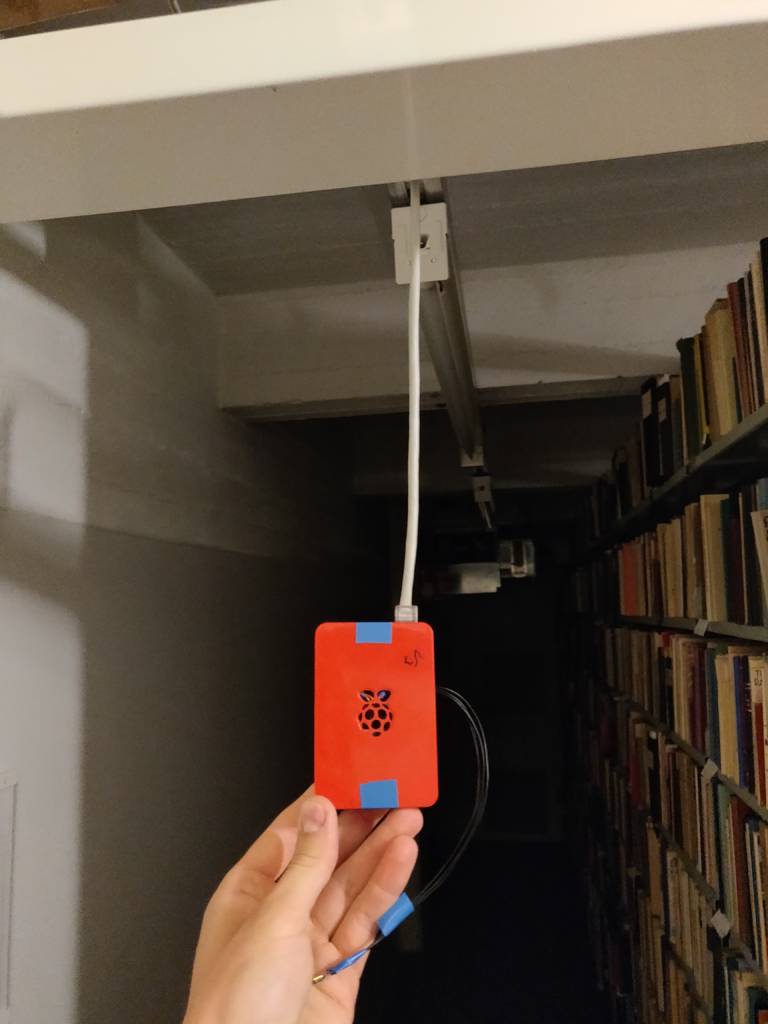
Another issue is that during power outages, Raspberry Pi switches off and the SD card is usually corrupted and needs to be replaced.
Also, coding a Raspberry Pi system requires work. Each one needs to be modified to fit this monitoring purpose. In general the system took a lot of work and it was just as expensive a ready-to-use monitoring system.
Analog sensors must be calibrated regularly
Up until 2010, these spaces were monitored with analog sensors. Someone would read the measurements and write them down. This method was not precise and it took a lot of time. Most analog moisture sensors found in the book storing space were displaying significantly false numbers.
Ruuvi offers ready-to-use monitoring system for the university
The IT specialist who introduced me to these spaces, had heard of Ruuvi while engaging in his personal IT hobby. So he ordered a set of nine RuuviTags and three Ruuvi Gateways to test the system in their university spaces.
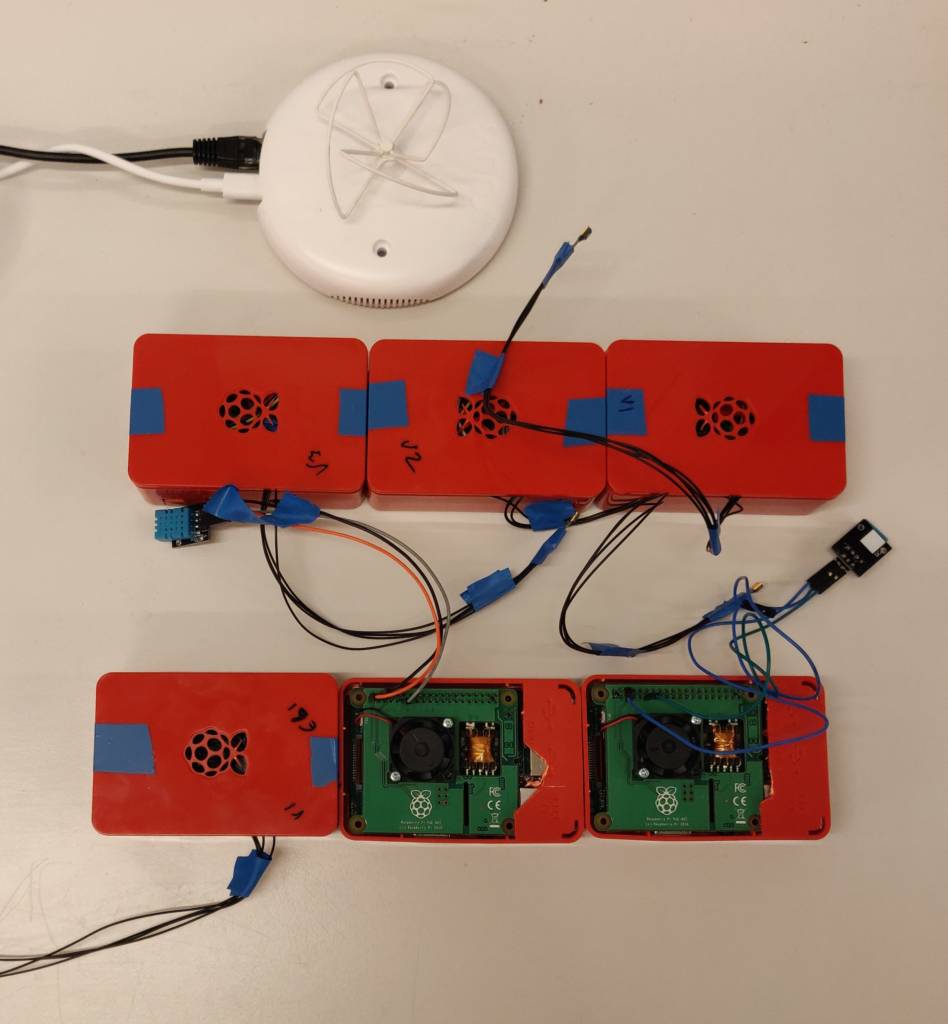
Three RuuviTags are placed on one floor. Two at the opposite ends of the corridor and one in the middle. One Ruuvi Gateway has been placed in the middle of each floor to transmit the measurements of the RuuviTags to the Ruuvi Cloud. There are Ethernet cables in the storing unit, where Ruuvi Gateways are connected to the Internet. They receive electricity through PoE splitters which are purchased separately.
“It was enjoyable to set up the Ruuvi monitoring system,”
said the IT specialist Pekka.
Setting up Ruuvi monitoring system is easy:
- Place RuuviTags in the locations where you need environmental monitoring
- Connect Ruuvi Gateway to the Internet
- Create a Ruuvi Station account and claim ownership of the RuuviTags
And that’s it. Compare this to the numerous hours you would need to spend on modifying Raspberry Pis to suit your needs or by constantly monitoring analog sensors.
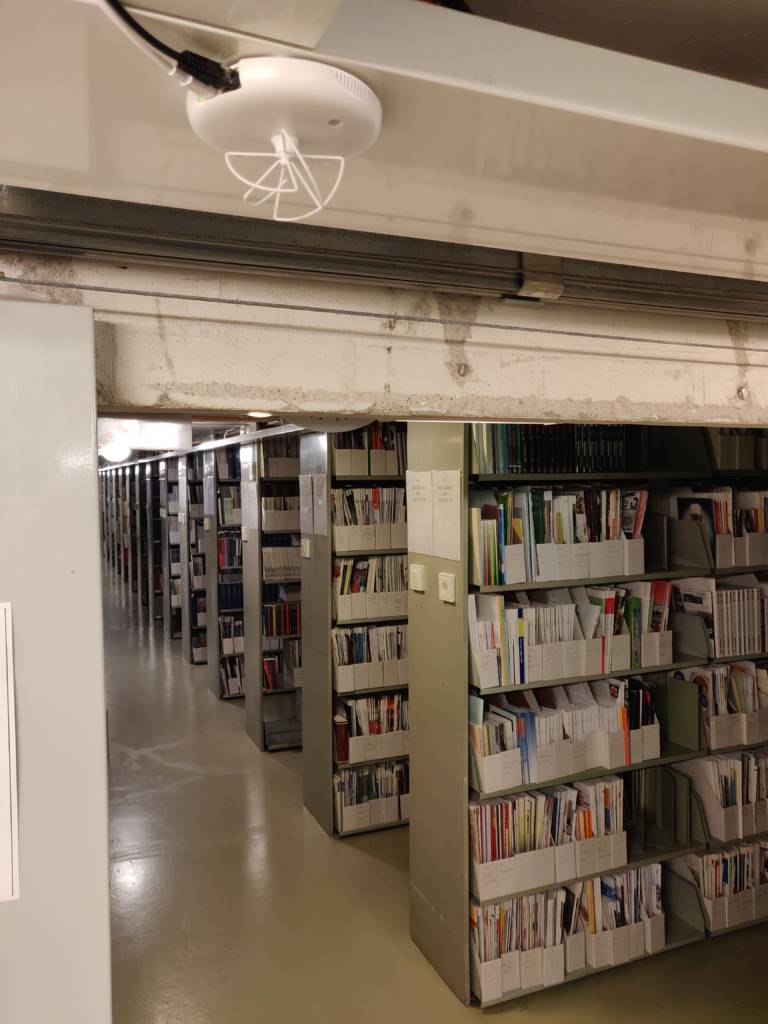
The staff of University of Turku receives valuable data constantly and easily
Thanks to the Ruuvi monitoring system, the staff of the University of Turku can show the company managing the conditions in the book storing space that some values need tweaking. As a result, they can now focus on other important tasks, as Ruuvi helps them ensure that correct temperature and humidity levels are maintained in these spaces.
Alarms are sent to the responsible people if improper conditions occur for any reason. Also, with the help of historical data graphs, they were able to determine a better cooling schedule to keep the air humidity at a more constant level at all times.
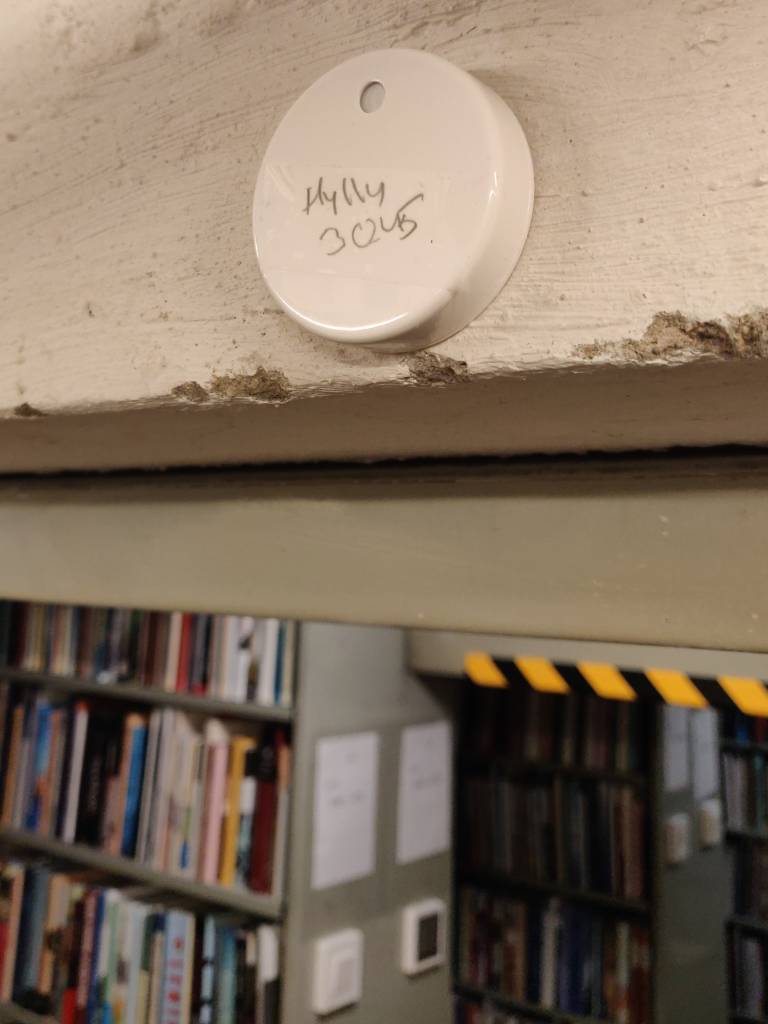
RuuviTag is an accurate and inexpensive solution for environmental monitoring
The IT specialist who set up the Ruuvi monitoring system had conducted a quick test to determine the reliability of RuuviTags’ measurements. He had opened three RuuviTags’ capsules and left them next to each other on a table. The next day when he looked at the values, their humidity levels differed by ±0.03% of relative humidity. Hence, he was satisfied with the results and proceeded to set up the rest of the system.
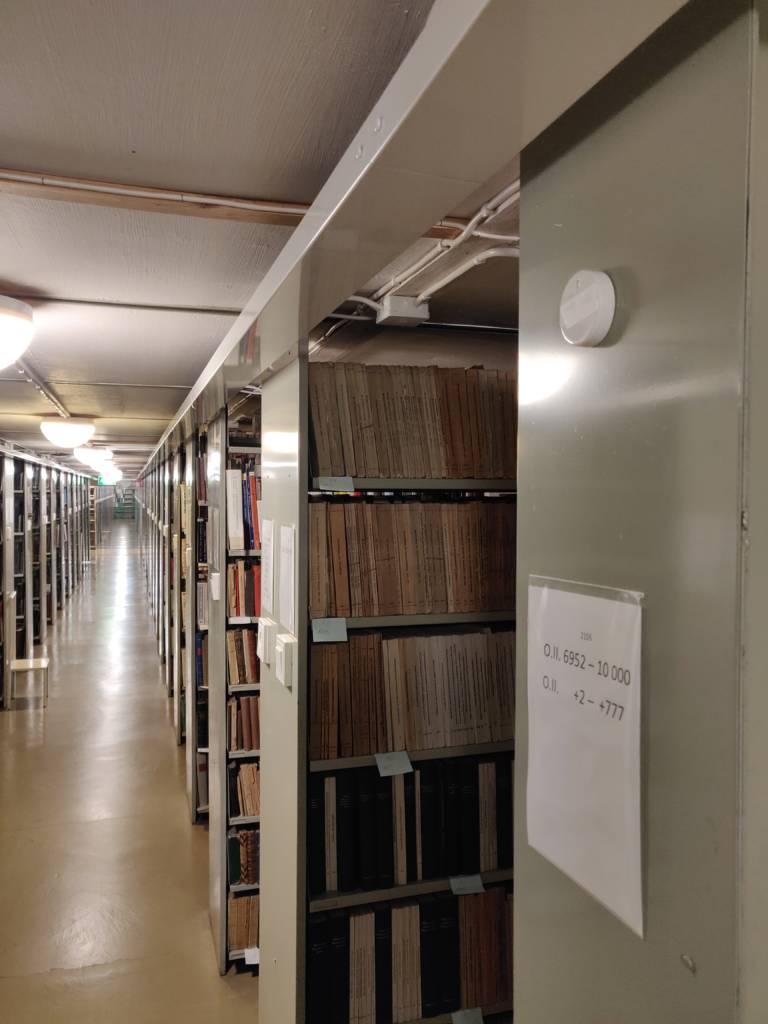
I conducted a brief interview with Pekka about his satisfaction with our products
– Are you satisfied with the Ruuvi products?
Yes, definitely! With my experience I feel that frequently in a product with such good firmware, there are severe problems with the software. And vice versa. With Ruuvi, the accurate and long-lasting RuuviTags are paired with a simple and easy-to-use application! Setting them up was enjoyable and easy. With the prices of Ruuvi products, it does not make sense to set up another system to do the same job. And now we have real data to show to the maintenance company and we can figure out the best ways to maintain these spaces.
– Do you foresee the future usage of Ruuvi’s products at your University?
Yes, I believe that we are going to set up similar monitoring systems in other spaces, as we have the need for environmental monitoring in labs and other sensitive areas. If our experience is positive, which it has been up to date, I can see us working more with Ruuvi.
– Have you recommended Ruuvi’s products to anyone?
I live in an older house with a challenging basement and attic. To know what the conditions in these areas are, I have made up environmental monitoring systems with Raspberry Pi that I have also lent to my neighbours and friends. I have now recommended to them to try Ruuvi’s products as they are super easy for anyone to use. You really don’t need a background in IT stuff to get the most out of these sensors.
Conclusions
University of Turku has benefitted from using our Ruuvi monitoring system. It has resulted in increased accuracy and reliability and also in fewer working hours for the employees. The IT specialist behind this project is happy with our products and readily recommends them to anyone struggling with similar problems, as he did at the University and also at his house.
We have helped the University of Turku, how can we help you?
RuuviTags measure air temperature, humidity, pressure and movement and transfer these measurements wirelessly via Bluetooth. Ruuvi Gateway sends this data to the Ruuvi Cloud service and the data is accessible from anywhere in the world!
FAQ
Who uses the Ruuvi monitoring system?
Multiple large companies and institutions trust in our products. Most recently, the University of Turku has chosen us to help them in their environmental monitoring!
Could RuuviTags be integrated into my existing software?
Yes! RuuviTags are made with open source software, so they can be easily integrated with your current software.